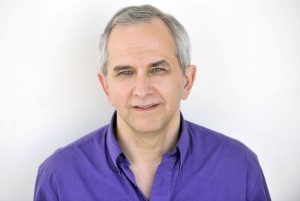“I can’t breathe”: Bahrain and the struggle for a free press
My 17 year old daughter discovered a series of photographs from the 1960s American civil liberties struggle that show groups of African American men in Memphis, Tennessee carrying signs that simply say “I am a man.” They were published in newspapers of the day and the stark simplicity of the words, the mute power of the images helped to turn the tide in a battle that many had judged could not be won.
My daughter incorporated those photographs into an art project that explores giving voice to the victims of human rights abuses. As she continued her research she came across the story of Eric Garner, the 43 year old who, whilst in a chokehold applied by a New York City police officer, repeatedly gasped out the words “I can’t breathe” just before he died.
I told her of how Bahraini friends and colleagues had used that identical phrase to describe what was happening to them. The chokehold was not a sole police officer, it was the full array of the state, squeezing out of them the right to speak and write openly and freely.
The links between the struggle for civil liberties, challenging state oppression and a free and open press is as clear now in Bahrain as it was more than 50 years ago in Memphis, Tennessee. A free press is the lungs of a free society. And when the lungs are assailed by draconian laws, near daily harassment, assaults on the street and in detention, unfair trials and imprisonment it is not only the journalists and their families who suffer, it is the whole society.
Bahrain has seen enormous setbacks in the struggle for a free press since the November, 2011 release of the Bahrain Independent Commission of Inquiry (BICI) chaired by Cherif Bassiouni. In the section dealing with media harassment the report notes: “It is clear that the media in Bahrain is biased towards the GoB (government of Bahrain). Six of the seven daily newspapers are pro-government and the broadcasting service is State-controlled. The continuing failure to provide opposition groups with an adequate voice in the national media risks further polarising the political and ethnic divide in Bahrain.”
The report made only one recommendation on media but it is as eloquent, in its brevity, as “I am a man”. Here it is in full: “The Commission recommends that the GoB consider relaxing censorship and allowing the opposition greater access to television broadcasts, radio broadcasts and print media.”
But the Bahraini authorities gave no such consideration then or to this day to the recommendation, despite article 24 of the constitution affirming freedom of the press and despite promises given by King Hamad and the government to carry out in full the recommendations of the BICI report.
Bahrain is divided now as never before. Intolerance has swept aside tolerance. The common ground where solutions may be found is rapidly vanishing. My friends say they can feel the walls of oppression closing in upon them.
“I can’t breathe, I am a man, I am woman, I am a journalist and I cannot breathe.”
But their great determination and courage dictates they will not succumb, they will continue to fight for the right of all Bahrainis to breathe freely. They will not be silenced. They will breathe.
